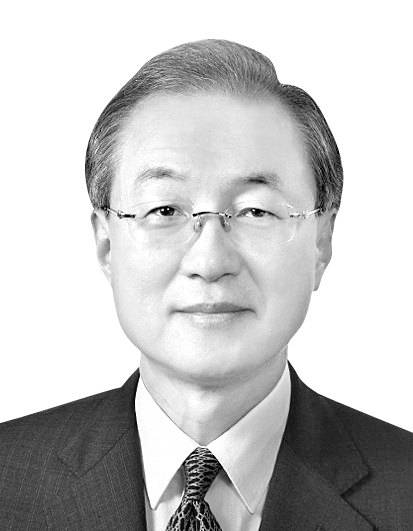Bracing for Biden

Bark Tae-ho
The author is the president of Lee & Ko Global Commerce Institute and the former Minister for Trade.
The United States swears in Democratic President Joe Biden on Wednesday. The incoming administration has lots of cleaning up to do after Biden’s predecessor Donald Trump. Biden must bring together a seriously divided nation, mitigate the pandemic crisis and restore the economy after an unprecedented slump. None of this work will be easy.
From outside, nations are eagerly awaiting Biden’s trade policy and wondering how it will differ from the unilateral and unpredictable trade offensives of the Trump administration. Biden’s trade agenda could be less urgent due to his engrossment with domestic affairs. But Biden was quick to name Katherine Tai, a trade lawyer, as his choice for U.S. trade representative, which suggested he plans to place a high priority on trade under his administration.
Biden already vowed to return to multilateralism and cooperation with allies to correct unfairness in trade practices. Washington will work with the World Trade Organization (WTO) to solve various trade issues, including conflict with China, through negotiations with trade partners. The Biden administration is also expected to return to multilateral trade blocs such as the Trans-Pacific Partnership promoted by the Obama administration but abandoned by Trump. Trade experts expect a positive influence on the global trade order under Biden.
![On Jan. 15, U.S. President-elect Joe Biden lays out his plan to combat the coronavirus in Wilmington, Delaware. [AFP/YONHAP]](https://img4.daumcdn.net/thumb/R658x0.q70/?fname=https://t1.daumcdn.net/news/202101/18/koreajoongangdaily/20210118193104101gdhc.jpg)
Still, Biden’s trade policy cannot but be linked to creating jobs and making the economy at home more vibrant. Protecting domestic industries and workers will be a key. Trade relief mechanisms through tariffs, antidumping and countervailing duties and safeguard measures will back his $400 billion “Buy America” initiative. To address climate change issues, Biden is expected to institute a carbon tax, which would eventually help protect U.S. manufacturing sector and jobs. He also would reinforce the reshoring policy the Obama administration pursued to bring U.S. companies back to home turf.
Containment of China also will likely continue. As the vice president under Obama, Biden voiced intolerance of China’s unfair trade practices. Washington will strongly contest Beijing’s excessive subsidies and direct intervention to promote its high tech industries way beyond international standards.
Various trade tools and measures will likely be introduced in the early stage of Biden’s presidency. Most would be focusing on protecting local industries and markets. The Korean government and companies must be extra careful not to become targets of punitive measures from the new U.S. government. Korea must tread carefully as it reaps a big surplus in trade with America. For instance, it must be careful not to make a certain import item come under scrutiny.
At the same time, Korea Inc. must re-examine its global supply chain so as not to get caught up in the drawn-out trade conflict between the United States and China. Korean companies must strategically streamline their supply chain, source supplies from outside China and move some of its assembly and processing lines to Southeast Asian countries. Some manufacturing lines need to be expanded into China for certain companies to directly sell to the Chinese market.
Meanwhile, the Korean government and companies must seek new opportunities and cooperation in Biden’s environmental infrastructure investment and green industry promotion. Seoul also needs to make very clear its position on joining the multilateral trade pacts the United States is expected to rejoin.
South Korea could come under pressure to choose between the United States and China in trade affairs. It must keep to its basic stance of respecting the market and free trade principles and trade multilateralism. Instead of siding with a particular country, Korea must make it clear that its policy is guided by values and principles. Such an approach will help gain consensus from overseas and at home.
As South Korea readies itself for the new administration, it must keep in mind that an America-first policy will be retained even under a new U.S. administration and president. Policymakers and Korean enterprises must tailor their strategies under a new norm.
Copyright © 코리아중앙데일리. 무단전재 및 재배포 금지.